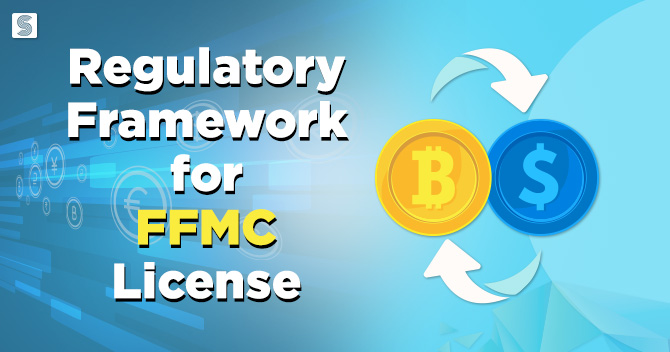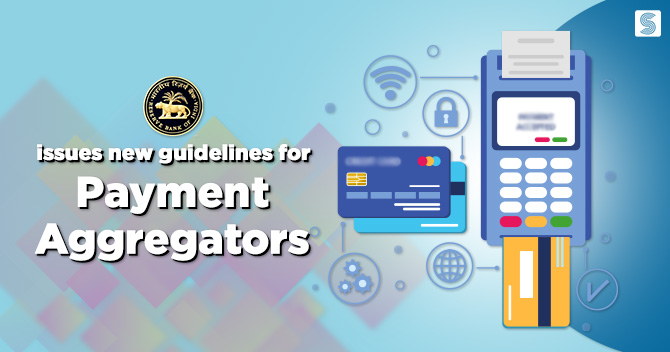What is the Regulatory Framework for FFMC License?

Divyanshu Gupta | Updated: Apr 04, 2020 | Category: FFMC, RBI Advisory
Have you ever heard about Full Fledged Money Changer? If you have heard about Full Fledged Money Changer, have you ever tried to understand who regulates it? Still, puzzled? Are you fascinated about how does foreign exchange work in India, or if you are keen to start your firm which will deal with activities of a money changer, then you accessed the right document? It provides you with the insights of FFMC License and what is its Regulatory Framework?
Table of Contents
An overview of FFMC License
Before getting into the details of the Regulatory Framework for FFMC License, it is necessary to understand what FFMC License is all about? Who must go for it? What importance does FFMC License hold and allied attributes?
You must be aware that FFMC stands for Full Fledged Money Changer. It is Section 10(1) of the Foreign Exchange Management Act and RBI, which governs it. If any person who seeks to express his interest in getting his hands on the activities of foreign exchange, he must seek the permission of RBI, which has the authority to authorize a person to carry out the necessary activities. The entities that are approved by Reserve Bank of India to do money changing business according to Section 10 of the Foreign Exchange Management Act, 1999 are referred to as FFMC.
There is a category of people defined by RBI as Authorized Dealers and are broadly classified in three categories. Have a look at them which is as follows-
When current and capital account transactions are carried out by the banks, they are treated as Authorized Dealers Category-I. This category works under the directions of RBI, which it gets from time to time.
When non-trade related current account transactions are allowed to be executed like FFMC by RBI, it comes under the ambit of Authorized Dealers Category-II.
Authorized Dealers Category-III not only includes registered companies under the Companies Registration Act 2013 but also selected financial and other institutions. They are allowed to work as Full Fledged Changer, whose focus is to execute specific foreign exchange transactions.
Franchisees may be appointed by the categories listed above as it helps them to
- Process travellers’ cheques or coins in Indian currency
- Foreign currency note conversion
Functions performed by FFMC
Certain functions are performed by FFMC for which they are intended and stringent Registration procedure is followed by them. Have a look at the functions performed by them listed below-
- Foreign exchange is sold by FFMC for the activities like Forex Prepaid cards, private visits. Not to forget, it also sells foreign exchange for business visits too.
- Foreign currency notes can be freely purchased by FFMC.
- This one is interesting as it allows the residents and non-residents to purchase travellers’ cheques as well as coins too.
- Indian Rupees can be sold to foreign tourists as well as visitors by FFMC against International Debit cards as well as International Credit cards.
- As a franchisee, if you want to execute Restricted Money Changing business then Franchisee Agreements is the option on which you can rely as it entices conversion of foreign currency notes, coins or travellers’ cheques into Indian Rupees.
- Authorized Money Changers are the entities that are authorized by Reserve Bank of India under Section 10 of Foreign Exchange Management Act 1999. An AMC is a Full Fledged Money Changer authorized by Reserve Bank to deal in Foreign exchange for the specified purposes.
Registration Procedure for FFMC License
Like any other Registration process in India, people or institutes who want to engage in the activities of foreign exchange have to undergo FFMC License Registration process which is listed below-
- Attaining FFMC License is an offline process.
- It starts with filling the Application Form, which must be submitted with the necessary documents listed in the next section below.
- The Registered Office of the applicant Company falls under the respective Regional Office of the Foreign Exchange Department, which falls under RBI. The Application and the documents are required to be submitted under the respective Regional Office of the Foreign Exchange Department.
Documents Required
As mentioned earlier, certain documents are required to be submitted along with the Application. Have a look at the documents mentioned below to obtain FFMC License.
- Certificate of Incorporation copy
- MOA which states provision related to money changing activity
- Bank’s Confidential Report which will be in a sealed cover
- Certificate from Statutory Auditors along with copies of the latest audited Accounts which comprise audited Balance Sheet copies, Company’s Profit and Loss Account particularly for immediate last three years (if applicable)
- Copy of Board Resolution duly certified and stating money changing business.
- Nature of business and its detail
- Investigation of DOE/DOI was never carried out regarding Directors/ Company for which Declaration is required
- Sister concerns/Associated concerns details involved in Financial sector
- The applicant needs to disclose information related to FFMC/RMC License held previously
Regulatory Framework for FFMC License
It is imperative to understand what necessitates the Regulatory Framework for FFMC License? Why is it required? Have a look at it why is it is necessary and what attributes are covered by Regulatory Framework for FFMC License-
The guidelines for the issue of the new FFMC License is an essential attribute covered under the Regulatory Framework for FFMC License as it aids in obtaining FFMC License. Moreover, it formulates the principles regarding renewal of FFMC License, which ensures the renewal of a Full-Fledged Money-Changers License shall be made before one month from the expiry date of the License and can’t be made after the expiry. The rules regarding Branch Licensing are laid down by it too, which has to be adhered. There are specific parameters regarding approval for the appointment of agents/Franchisees, which are also drafted by it. The rules and regulations regarding Know Your Customer (KYC) / Anti Money Laundering (AML) are clearly stated by it, which ensures the documents received are properly scrutinized and verified in addition to maintaining accuracy and transparency of the transactions. It prohibits the financing of terrorism and also lays down the guidelines for Authorized Persons, which streamline operations, thereby ensuring efficiency.
Who are eligible to act as FFMC?
If you want to establish FFMC, certain eligibility criteria need to be adhered. Have a look at the following-
The company must be registered with ROC under Companies Act, 2013 is the first and foremost eligibility criteria to obtain FFMC License. Another essential criterion to obtain FFMC License is regarding Net Owned Funds. It varies based on a number of branches as it stands INR 25 lakhs if one wants to operate single branch whereas if someone is keen to operate from multiple branches, the amount of Net Owned Fund goes to INR 50 lakhs. It is vital to know at this juncture that the Net Owned Fund needs to be maintained in perpetuity. The third criterion that stands valid is regarding object clause. Object clause of FFMC must ensure that it will be money changing activity. Another vital criterion that is essential is Company should be free from the ongoing case in context to the Department of Revenue Intelligence or Department of Enforcement.
Conclusion
Also, Read: Time Required for Obtaining FFMC License in India














